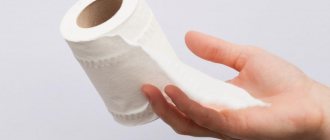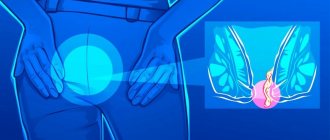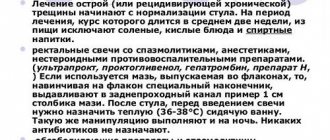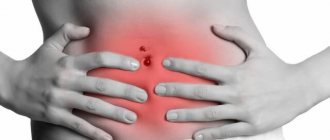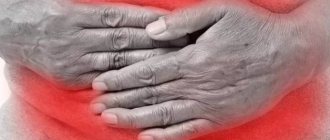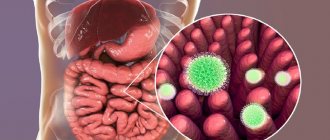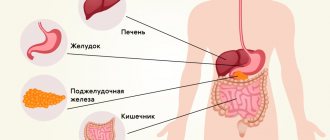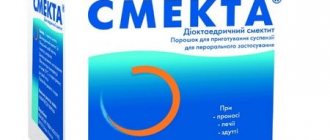Diarrhea is an unpleasant phenomenon that can last for a long time. It is accompanied by frequent and profuse bowel movements from 5 to 20 times a day. A burning sensation in the anus often appears after diarrhea. The reason for this unpleasant condition is the injury to the sphincter during diarrhea. However, severe itching, burning or pain may be signs of the disease. It is impossible to independently determine why the sphincter hurts after severe diarrhea. It is necessary to undergo an examination and see a doctor.
Causes of pain in the anus after diarrhea
Diarrhea is accompanied by many unpleasant symptoms: from itching in the anus to abdominal pain and high fever. The manifestation of certain signs depends on the causes of the intestinal disorder.
When diarrhea and burning in the anus occur, it is necessary to determine what led to this condition. The appearance of discomfort in the sphincter area indicates that there is irritation and inflammation. The causes of discomfort may be:
- Bacteria. Intestinal infections caused by microbes are quite severe, with fever and abdominal pain. During diarrhea, some microorganisms are released with feces, remaining on the sphincter and causing inflammation. In this case, not only itching appears, but also painful sensations, and the temperature rises even more.
- Helminths. Many parasites cause diarrhea by taking nutrients from food and releasing toxins. Severe itching sensations in the anus are observed when infected with pinworms. Adults lay eggs in the sphincter area, secreting a glue that irritates the skin.
- Hemorrhoidal cones. If after diarrhea there is pain and itching in the anus, this may be the first sign of hemorrhoids. Part of the rectum bulges out, forming a small nodule. At first it remains invisible, but it begins to itch and hurt. Hemorrhoids appear both after constipation and as a result of prolonged loose stools.
- Anal fissure. If the rectal wall and sphincter are damaged, pain and burning occur with every bowel movement. During diarrhea, feces irritate the damaged area more, causing the itching to intensify. If the crack diverges, scarlet drops of blood appear in the stool.
- Venereal diseases. Bacteria and fungi that cause such infections (chlamydia, thrush, etc.) as a result of improper hygiene enter the anus and then the rectum, causing infection and disruption of the intestines. This is especially common in women due to the anatomical features of the genital organs.
There are times when the butt hurts after diarrhea solely due to improper hygiene. Liquid stool remains on the sphincter and is not completely removed with toilet paper, and then causes itching, pain and irritation. Therefore, it is recommended to wash yourself.
Why does itching and burning in the anus occur after diarrhea?
Negative feelings also cause:
- pain in the anus;
- itching around the anus;
- flatulenication.
If, after passing liquid stool, there is a burning, itching or pain in the anus area, then this needs to be dealt with.
Unpleasant sensations in the anus, diarrhea, depend on internal and external factors. The first ones influence physiological processes from the outside, the second ones disrupt them due to a painful condition.
The category of physiological reasons includes:
- excessive passion for cleanliness;
- neglect of basic hygiene rules;
- inaccurate depilation of the anus;
- poor food choices;
- low-quality toilet paper;
- allergy to cosmetic substances.
Occasionally, itching during diarrhea is provoked by antibiotics used to treat pancreatitis or diabetes. If the stool is very watery, then a burning sensation in the anus can be observed both before and after going to the toilet.
For diarrhea
Although you don’t need to push when you have diarrhea, the process of defecation itself often causes discomfort. This is explained by a rush of blood to the anus and the concomitant activation of nerve endings.
Another reason for burning with frequent bowel movements is the liquid consistency of the stool. They land on the tender areas around the anus, causing itching and tingling.
If you group all the causes of discomfort caused directly by bowel movement, you will get a list:
- Nutrition.
- Food with a bright and spicy taste - peppered, over-salted, pickled dishes. Such food, even after treatment with food enzymes, retains substances that activate receptors on the skin. Even a short exposure is enough to cause itching.
- Injuries to the external anal sphincter.
- Lesions on the sphincter, which open wide when straightened, deprive the internal tissues of protection. Liquid feces fall on exposed areas causing pain and burning.
- Inflamed hemorrhoidal node.
- In acute hemorrhoids, the nodes become inflamed, become larger and more painful. When blood also flows to them during defecation, any impact is fraught with trouble.
- Flatus.
- The release of excess gases through the anus during diarrhea causes liquid stool to splatter around the anus. When they get on the delicate skin of the perineum, they cause discomfort.
After diarrhea
The causes of burning after defecation are largely similar to the previous ones, but there are also differences.
Sometimes, the burning sensation during diarrhea is localized not in the anus, but in other places. Often preceding or accompanying loose stools. Understanding the causes of these phenomena helps in the treatment of diarrhea.
- Intestinal burning accompanied by frequent diarrhea is an additional symptom of several unpleasant diseases.
- The most dangerous thing is appendicitis, the main symptoms of which are:
- If these symptoms appear, you should immediately seek help from specialists.
- When determining the causes of a burning sensation in the stomach with diarrhea, you need to pay attention to:
- The nature of burning phenomena.
- Presence of additional symptoms.
- What factors cause itching?
Overeating or poor quality food are the main causes of loose stools and burning in the abdomen.
Metabolic disorders and stomach clogging can be added to the same list.
If you have a burning sensation in your mouth, you should immediately run to the doctor for a burning sensation in your mouth, because... this may be a sign of cancer.
Experts advise not to self-medicate. Use medications and folk remedies without consultation, only as a last resort.
Three categories of medications are used to treat anal discomfort:
- Antipruritic.
- Advantan;
- Fenistil;
- Skin Cap;
- Nezulin.
- Anti-inflammatory.
- Syntomecin;
- Levomekol;
- Eplan;
- Argosulfan.
- Wound healing.
- Radevit;
- Bepanten;
- Solcoseryl;
- D-panthenol.
Other groups of drugs and folk remedies will help in the treatment of diarrhea:
- Antidiarrheal
- Fixing.
- Enveloping.
- Astringents.
- Homeopathic.
- If alarm signals appear: bleeding, high fever, deterioration of the condition, you should immediately seek help from specialists.
Unpleasant sensations after diarrhea have many possible causes. In this case, not only irritation of the anus is detected, but the process is also accompanied by severe pain. Factors in the appearance of unpleasant symptoms are considered to be diseases that relate to inflammatory processes in various organs.
Some people don't pay attention to personal hygiene. This includes bad toilet paper. Poor quality personal hygiene attribute does not always absorb all liquid feces. Some of the stool remains on the skin near the sphincter. It is worth noting that the dermis of the anus is sensitive, and dried feces irritate the epithelium.
The symptoms become more noticeable after eating spicy foods. During diarrhea, you should not eat foods with spices, especially red pepper.
Otherwise, infection with viruses and bacteria occurs. At the same time, disease-causing pathogens are found in feces. Microorganisms enter the sphincter. In the anal area, they begin to multiply, producing exotoxins. These substances irritate the dermis, which is considered a factor in the occurrence of burning after diarrhea. In some cases, a rash appears.
Parasitic infestations
In some cases, a burning sensation in the anus with diarrhea appears due to infection with helminths. Along with the unpleasant sensation, severe pain occurs after defecation. In this case, the patient involuntarily scratches the skin near the sphincter. This leads to the formation of microcracks, which causes irritation. The area around the sphincter becomes red.
Parasites are mainly located in the intestines. The primary signs of worms in the body are itching and burning after defecation. With helminthiasis, the patient is accompanied by loose stools mixed with greenish mucus. Long-term parasitism of worms in the body not only causes discomfort, but also causes rumbling in the stomach. Feces have a pungent odor.
Diarrhea and burning sensation occur in the anus due to diseases that are sexually transmitted. In this case, not only such unpleasant sensations appear, but also characteristic discharge from the genital organs is detected. Secretory fluid creates favorable conditions for the proliferation of bacteria and fungi in the urinary system and anus. Moreover, after loose stools, not only a burning sensation occurs, but also the diseases are accompanied by severe pain.
Thrush or Candida fungus is considered a frequent manifestation with itching and burning. The sexually transmitted disease develops in both women and men under certain circumstances, irritating the genitals and anus. In individual cases, candidiasis occurs in children, which indicates transmission of the disease from the mother.
Any damage to the dermis or the appearance of cracks in the anus causes irritation during or after defecation. The provocateurs are:
- rough toilet paper;
- underwear made of synthetic material;
- tight or uncomfortable clothing.
The main factor causing microcracks is poor paper. If a person often has loose stools, he has to carefully wipe out the stool. Rigid paper does not allow this to be done properly, which causes cracks. This leads to irritation and redness in the area around the sphincter.
In some cases, hemorrhoids become the cause of discomfort. At the same time, blood stagnates in the adjacent capillaries. When a lot of it accumulates, the hemorrhoidal cone (part of the rectum) begins to protrude from the anus. This becomes the reason why itching and burning occurs after diarrhea. A hemorrhoidal lump, when it begins to protrude, becomes susceptible to any mechanical damage.
With hemorrhoids, many cracks appear around the anus. When a patient experiences diarrhea, inflammation of the damaged tissue occurs. The skin begins to become inflamed, and the process is repeated each time until comprehensive treatment is carried out.
Blood passes through the liver, where it is filtered. The organ helps collect toxins and harmful substances from it. The liver breaks them down and removes them from the body through the duodenum. If diarrhea occurs due to problems with the liver or gall bladder, then enzymes are found in the stool. At the same time, the mass gives off a sour or pungent odor. These factors cause a burning sensation after diarrhea.
In addition to unpleasant sensations, yellowing of the whites of the eyes is observed. The nails also appear yellow, as in the case of jaundice. The stool is black or contains blood in the loose stool.
When you have diabetes, the pathology has a negative impact on the entire body. This causes diarrhea. Diabetes mellitus affects the digestive system. In this case, the skin becomes dry and damaged from any mechanical impact.
Diagnostics
The cause of a strong burning sensation in the anus during diarrhea can only be determined after an examination. Many people are embarrassed to consult a doctor about this problem and waste time, as a result of which the disease progresses, inflammation intensifies, and symptoms become more pronounced.
If such problems arise, you can contact a therapist or proctologist. The proctologist will examine the anus, collect anamnesis and prescribe further examination:
- Blood analysis. Using a general and clinical blood test and immunoglobulins, you can determine the presence of chronic diseases, internal inflammation, dysfunction of a particular organ, parasites, etc. This is a quick diagnosis, which is primary. The result helps determine the direction for further examination.
- Coprogram. Laboratory examination of stool can reveal disturbances in the functioning of the intestines, stomach, pancreas, and liver. Using this analysis, hidden blood in the stool, ulcers, and inflammatory processes in the gastrointestinal tract are detected. Before the examination, you need to adhere to a gentle diet. The result is influenced by the collection of material, which is carried out by the patient himself.
- Anus swab. Material collection is a safe and painless procedure. The smear contains cells from the walls of the rectum, which makes it possible to determine various pathologies and inflammatory conditions, urogenital infections, and helminthic infestations.
- Anoscopy. This procedure involves examining the rectum using an anoscope. The use of anesthetics eliminates pain. This procedure helps to identify rectal diseases and other pathologies that are not always possible to identify using laboratory tests. The procedure is informative in diagnosing hemorrhoids.
If the cause of diarrhea cannot be determined, other examination methods are prescribed: sigmoidoscopy, colonoscopy, irrigoscopy, MRI, CT. A course of therapy is prescribed only after an accurate diagnosis has been made.
You should not use the Internet to make a diagnosis. Without tests and examination, it is impossible to accurately name the cause, since most pathologies in this case have similar symptoms.
How to get rid of burning and itching in the anus with diarrhea - About diarrhea (diarrhea)
Irritation of the anus with frequent loose stools is usually accompanied by itching, pain in the anus and a burning sensation.
The butt becomes red and burns, which causes great discomfort for both adults and children. If a child does not hesitate to complain about unpleasant sensations, then not every adult will dare to talk about his problem, so quite often the disease takes on an advanced form before a person comes to see a doctor.
And this is fraught with multiple problems. First of all, the psycho-emotional state suffers. When the anus is inflamed, burning and painful from incessant diarrhea, the person becomes depressed and irritable.
When pain prevents you from concentrating or sitting down, it affects not only a person’s mood and behavior, but also his performance, communication with others and his personal life.
In children, the development of severe irritation of the anus can be prevented and treatment can be started in a timely manner, since the first symptom of the disease is redness of the butt, which attentive parents will definitely notice. Treatment of pain, burning, itching, redness of the butt due to diarrhea should not be delayed, as this will bring great inconvenience and can cause serious health problems.
Causes of diarrhea, accompanied by itching, burning and pain in the anus
Irritation of the anus, when the ass burns and hurts after loose stools, may indicate various pathological conditions.
Diarrhea itself causes a lot of trouble, and if it is also accompanied by unpleasant sensations such as itching, burning, the anus hurts and does not give rest, the discomfort increases significantly.
These problems are quite common, and the way to eliminate them largely depends on the reasons that contribute to their occurrence, of which there are quite a few.
Bacteria and viruses
Diarrhea is often associated with disruption of the intestinal microflora and inflammatory processes due to the activity of bacteria and viruses.
In this case, the frequent urge to defecate is accompanied by irritation of the anus, redness of the skin on the butt, which can cause a rash, burning, and itching of the anus.
The appearance of these symptoms is facilitated by microorganisms contained in loose stools that provoke intestinal disorders, for example, staphylococcus.
Violation of hygiene standards
Violations of hygiene standards include rare water treatments and infrequent changes of linen. Unhygienic conditions lead to the spread of infection in the anal area, redness of the butt, itching, and burning, which are aggravated by liquid stool.
Digestive tract diseases
Intestinal diseases are the most common cause of diarrhea with pain, itching, burning in the anal area.
These may be viral infectious diseases, tumor formations, the presence of polyps, warts, condylomas, fistulas, cracks in the anus and rectum.
Irritation of the anus can be a companion to a disease such as hemorrhoids, and traces of blood can be found in loose stools. The development of hemorrhoids can be triggered by a sedentary lifestyle or injury to the perineal area.
Intestinal damage by parasites and worms
Parasitic intestinal diseases are perhaps one of the main causes of diarrhea, accompanied by burning, itching, and the butt becomes irritated and red. Parasites settle in the rectum, their presence is sometimes not manifested by anything other than itching in the anus, redness of the butt and loose stools.
More often, children become infected with worms because they tend to put objects picked up from the floor or ground into their mouths, lick their hands, and kiss pets. In this case, the diarrhea will have characteristic mucus and will have a greenish tint.
In addition, with loose stools caused by worms, the stomach often hurts and growls, and the itching of the anus sometimes becomes unbearable, which forces a person to scratch it, causing even greater irritation.
In addition to worms, the intestines are often affected by intestinal lamblia - simple microorganisms that disrupt the functioning of the digestive system, and in particular the absorption function, causing irritation of the intestinal walls, intoxication of the body, and, as a result, burning diarrhea. The characteristic burning sensation intensifies when the female parasite comes out, where she lays eggs.
Spicy food
Diarrhea with burning can also be caused by spicy food, which speeds up the digestion process, forcing the intestines to contract faster and move through the digestive tract, causing loose stools, irritation of the mucous membranes and skin.
Sexually transmitted infections
Sexually transmitted diseases are characterized by genital discharge.
These diseases are caused by fungi, which, when multiplying, also lead to irritation of the skin in the anal area, so a burning sensation is felt when defecating.
The fungus most often found in women is candidiasis, which causes a disease such as thrush, accompanied by white discharge. For men, this disease is transmitted during sexual intercourse.
Mechanical damage to the skin in the anal area
Mechanical damage can be caused by both rough toilet paper and uncomfortable tight underwear, which creates friction near the anus. As a result of their use, irritation and a burning sensation with diarrhea, accompanied by itching, appear.
Severe itching leads to the formation of rashes and severe pain.
The use of a razor to remove hair can damage the skin in the anus; after its use, microscopic cracks are formed, which are irritated by loose stools and cause itching, so after defecation, the irritated area of the anus may hurt.
Diabetes
Diabetes is the cause of diarrhea caused by metabolic disorders. In turn, loose stools cause a burning sensation, which is explained by dry skin, including in the anus, which is characteristic of this disease.
Excess weight
Excess weight, that is, obesity, negatively affects the functioning of the digestive tract, many functions are disrupted, and loose stools often appear, causing itching and burning in the anal area as a result of frequent bowel movements, which are aggravated by increased sweating due to weight gain.
Diseases of the liver, gallbladder, pancreas
Diseases of the pancreas, liver, and gall bladder are accompanied by stool disorders, that is, diarrhea. If the functioning of these organs is disrupted, diarrhea becomes permanent, which also irritates the skin and mucous membrane of the anus.
Nervous tension
Nervous tension, stress and depression can increase sensitivity and dry skin. Under the influence of nervous shock, intestinal motility increases, as a result of which the rate of digestion and elimination of food increases, and stress diarrhea occurs. Frequent bowel movements further irritate sensitive skin, causing discomfort.
Allergic reactions
Often the cause of diarrhea is an allergy to food or medications. Allergic reactions are accompanied by increased skin sensitivity, rashes and itching; under the influence of cosmetic hygiene products, this condition can be aggravated.
How to find out the cause of discomfort in the anus?
If unpleasant symptoms such as burning, redness, rashes and itching during diarrhea appear in the anal area, you should consult a proctologist who specializes in intestinal diseases. A gynecologist also deals with similar problems in women, and a urologist in men.
In addition, problems of the digestive system, accompanied by indigestion - diarrhea or constipation, are within the competence of gastroenterologists.
If you still find it difficult to choose a specialist, you can make an appointment with a generalist, that is, with a therapist who, if necessary, will refer you to a doctor specializing in specific diseases. You may need to consult all of the listed doctors, to the list of which you can also add a dermatologist.
Only a specialist can choose the right treatment to eliminate irritation in the anus due to diarrhea. And to do this, it is necessary to find out the cause of the disease, for which you should undergo an appropriate examination, including, in addition to an external examination of the affected area, the following procedures:
- blood test - general and biochemical;
- blood test to determine glucose levels;
- general urine analysis;
- analysis of stool for the presence of parasites;
- stool analysis for the presence of dysbacteriosis;
- romnoscopy, colonoscopy and anoscopy - examination of the inner walls of the intestine using special devices.
How to treat burning and itching in the anus after diarrhea?
Treatment of irritation in the anus consists of eliminating the very cause of this disease, that is, diarrhea, as well as relieving symptoms such as burning, rashes, and itching. For treatment, ointments are used, which are selected taking into account the cause of the disease.
For example, treatment of cracks and hemorrhoids is carried out with heparin ointment, as well as Troxevasin or Relief. An excellent remedy for relieving pain and irritation is Menovazin. For itching, it is recommended to use Pirantel or Dekaris. Treatment of irritation and the causes that caused it should be carried out in a comprehensive manner and only as prescribed by a doctor.
In addition to medications, treatment includes physiotherapy, enemas, dietary nutrition, and folk remedies. One of the important components in this matter is personal hygiene.
To relieve the symptoms of irritation, it is necessary to wash your butt after each bowel movement, using only baby soap; it is better to exclude other hygiene products for now, since they contain many irritating substances. You also need to keep your underwear clean.
Prevention of anal diseases that cause burning and itching
The main rule for preventing irritation of the anus with diarrhea is to carry out regular hygiene procedures, replacing toilet paper with soft napkins. To prevent diarrhea, the following should be observed:
- wash your hands before eating and after going outside or visiting the toilet;
- subject meat and fish products to thorough heat treatment;
- wash vegetables and fruits well, preferably in soapy water;
- drink only boiled water;
- eat only fresh food;
- monitor the expiration dates of products;
- It is advisable to avoid nervous tension.
Source: https://ponosa.net/lechenie-diarei/prichiny-zhzheniya-i-zuda-v-zadnem-prohode-pri-ponose.html
Treatment methods for the root cause of burning sensation
When the anus hurts from diarrhea, treatment should begin with the underlying disease. Itching and burning are symptoms that can be completely eliminated only by stopping diarrhea. This does not mean that you need to immediately take fixative medications. They blur the clinical picture, make it difficult to cleanse the intestines, and reduce intestinal motility. Stopping diarrhea with such means is necessary when a diagnosis is made and there is an urgent need to stop fluid loss.
Treatment is selected individually depending on what disease provoked the unpleasant symptoms. The following drugs may be prescribed:
- Antibiotics. For bacterial infections (venereal, intestinal), the only effective treatment is antibiotics. They eliminate pathogens, but have a number of side effects, since along with pathogenic bacteria, beneficial bacteria also die. To avoid unpleasant consequences in the form of drug-induced diarrhea, additional probiotics are prescribed. Popular and effective drugs for the treatment of intestinal infections are Cefotaxime, Doxycycline, Amoxicillin, Erythromycin.
- Anthelmintic. These drugs do not kill, but paralyze the parasite. The helminth does not increase toxicity by decay products and cannot reproduce. They are then passed out in the stool. Typically, broad-spectrum drugs are prescribed: Pyrantel, Decaris, Praziquantel. The course of treatment depends on the type of helminth. Sometimes a single tablet is enough.
- Antidiarrheal fixatives. If diarrhea is taken by surprise or the amount of fluid lost causes signs of dehydration, fixing drugs will help to quickly stop the diarrhea: Imodium, Loperamide, Lopedium. They slow down intestinal motility.
- Intestinal antiseptics. Such drugs include Enterofuril, Sumetrolim. Enterofuril restores microflora and has a mild antimicrobial effect. Sumetrolim belongs to the group of sulfonamides. These are antimicrobial drugs that are less effective than antibiotics and are often prescribed for bacterial infections.
Additionally, prebiotics and probiotics are prescribed to restore intestinal microflora. It is also recommended to take adsorbents that have a porous structure, absorb toxins and allergens, and remove them with feces without being absorbed into the blood. In case of severe fluid loss, rehydration drugs (Regidron) are prescribed.
What to do and how to treat burning diarrhea
It is necessary to start treatment only after establishing the cause of the pathology. With a parasitic pathogen, it is not enough to treat only the symptoms, limiting yourself to local therapy, and during disturbances in the functioning of the gastrointestinal tract, you cannot do without the help of competent medications. For an accurate diagnosis and treatment, you must consult a doctor.
The first step is to get rid of the root cause of burning diarrhea - diarrhea. In addition to the medications prescribed by the doctor as needed, the patient must comply with the following rules:
- drink more fluids, restoring water balance,
- switch to a diet that includes gentle nutrition,
- eliminate consumption of dairy products, especially if diarrhea is caused by bacteria or fungi,
- rest. During a crisis, the human body is weakened, a lot of energy goes into restoring peristalsis, it is better to help the intestines in this matter and simply not interfere,
- If diarrhea with an unpleasant burning sensation lasts more than three days, consult a doctor.
The method of treatment depends on the causes of diarrhea and complications. In total, the following therapy is used:
- If the burning sensation during diarrhea is caused by hygienic reasons, completely reconsider the care of the intimate area. Wear comfortable, breathable underwear, wash regularly and watch your diet. Damaged areas require assistance in regeneration; antiseptics in the form of ointments and gels are usually prescribed.
- In case of parasitic infection, treatment will require a long time and competent support from the attending physician. Helminths are not treated at once; sometimes the removal of worms from the body occurs in several stages. Specific medications prescribed for parasitic infestations can radically affect the patient’s general condition. For more productive treatment, it is advisable to know the type of helminth and its specificity. Broad-spectrum anthelmintic drugs are taken in a short course, after which laxatives are prescribed to cleanse the intestinal walls of extinct worms.
- Bacterial and viral infections are treated with antiviral and antimicrobial drugs. Taking antibiotics is accompanied by courses of probiotics and prebiotics that can maintain normal microflora in the intestines.
After treating the main pathological conditions, they begin to get rid of microcracks in the anus. The doctor may prescribe special gels or ointments that promote regenerative properties; they soothe and cool the skin and mucous membranes.
What information is missing from the article?
- What frequency of bowel movements is considered normal and what is considered a disease?
- More recipes to stop diarrhea at home
- Description of cases for contacting a doctor
- Review of drugs
- Is the disease serious?
Eliminating symptoms
In addition to diarrhea, the patient is often bothered by severe itching in the anus. Experts strongly do not recommend scratching the itchy area, since the skin in this area is thin and delicate. You can provoke damage that will only increase the pain and burning sensation.
In case of diarrhea, burning in the anus is eliminated mainly with local medications:
- Heparin ointment. The drug relieves pain and itching in the anus, eliminates inflammation and serves as a prophylactic against increased thrombus formation. It is recommended for external and internal hemorrhoids, sphincter injuries, and edema.
- Relief. The drug has several varieties and is available in the form of ointments and rectal suppositories. This is one of the most effective remedies in the fight against hemorrhoids. The ointment is also used for anal fissures and other sphincter injuries. Thanks to anesthetic substances, it quickly and effectively relieves pain and itching, and also has a vasoconstrictor property and eliminates swelling.
- Celestoderm V. Ointment has antiallergic and anti-inflammatory effects. This is a hormonal drug, so it should be used carefully and not exceed the dosage.
- Candles with sea buckthorn oil. Suppositories actively heal the affected mucosa and accelerate regeneration. They do not have a quick antipruritic effect, but with regular use they relieve unpleasant symptoms within several days.
- Bezornil. A complex, effective drug that has antipruritic, anti-inflammatory, analgesic and hemostatic effects. Leaves a feeling of cold after use, relieves itching almost immediately. Recommended for eczema, anal fissures, hemorrhoids.
It is worth remembering that using local remedies is effective after determining the causes of itching, since they have different effects. Ointments intended to treat hemorrhoids will not help where there is a bacterial infection.
Any ointment is a means of combating the symptom. In case of chronic or acute diarrhea, the cause must also be eliminated, otherwise the treatment will be temporary.
Review of drugs
Many medications can relieve unpleasant symptoms. Popular ones:
- heparin ointment. In addition to its main properties - eliminating itching and burning, it can destroy pathogenic bacteria and reduce the risk of complications. Heparin relieves swelling, pain and irritation. Has a reasonable price
- relief The main active ingredient of this ointment is shark liver oil. This unusual ingredient has healing and anti-inflammatory properties,
- Chamomile decoction can disinfect the damaged area,
- If the pathogen is bacteria, antibacterial agents are prescribed. The prescription must be written by a competent doctor,
- Compresses based on oak bark or calendula help relieve itching in the anus.
The gels should be applied extremely carefully so as not to further injure the anus. The main thing in treating itching is not just to remove the symptoms, but to get rid of the cause.
Folk and herbal remedies for burning sensations
Pain in the anus after diarrhea can be eliminated not only with medications, but also with folk remedies. Traditional medicine is rich in recipes for restoring intestinal function, relieving itching and burning in the anus. It is advisable to combine the use of these drugs with drug therapy and diet. This will allow you to achieve quick and sustainable results.
Effective folk remedies for anal itching are:
- Pharmaceutical chamomile. If your anus hurts and itches after diarrhea, a remedy such as an infusion of chamomile flowers will help. For anal fissure, it is recommended to do microenemas with infusion. Chamomile baths will quickly relieve inflammation and itching. The water should be a comfortable warm temperature, not hot.
- Ice Cube. It is very important not to overcool and not injure delicate skin. An ice cube (without sharp corners or chips) is wrapped in clean gauze and applied to the itchy area. You only need to hold it for a few seconds.
- Soda. In women, the cause of itching in the perineum and anus is often thrush. You need to dissolve a quarter teaspoon of soda in a glass of water, then douche with this solution and wash off the rest.
- Sagebrush. This herb is considered an excellent natural anthelmintic. To prepare the medicine, you need to pour boiling water over a couple of tablespoons of wormwood and let it brew. It should be taken orally in small portions. But anthelmintic enemas with wormwood for intestinal parasites are also sometimes recommended. However, before using such a remedy, you must consult a doctor.
- Cranberry juice ointment. To relieve the burning sensation and stop the inflammatory process, you can prepare a cranberry-based ointment. Freshly squeezed cranberry juice is mixed with petroleum jelly (50 g of juice per 200 g of petroleum jelly). Lubricate the anus with the mixture several times a day.
When using homemade ointments and suppositories, you need to be careful. Some of them can cause an allergic reaction and increase itching. In this case, you must immediately consult a doctor.
Folk remedies are effective in combination with prevention rules. It is necessary to constantly wash yourself with mild soap or a special intimate hygiene product, wear underwear made from natural breathable fabrics, and choose high-quality soft toilet paper.
Diagnosis and treatment
If other unpleasant symptoms appear along with diarrhea, it is important to get examined. These areas hurt many people, and after the cause of the disease was precisely established, it became clear what to do in this case.
Treatment is determined based on the causes of the pathology. If the disease is caused by a parasitic disease, local treatment will not be enough. The same is true for internal diseases of the gastrointestinal tract.
The table shows some of the causes of itching and burning and methods for resolving the problem.
| Cause | Suitable treatment |
| Haemorrhoids | Venotonics are taken to normalize blood circulation. To relieve local irritation, use heparin ointment, Troxevasin, and Relief gel. |
| Helminths | In addition to oral administration of drugs, Pirantel ointment is used. This product is a local anthelmintic |
| Stress instability | Prescribe sedatives, preferably homeopathic. Apply topical moisturizers to relieve irritation |
When burning, it is very important to strictly observe personal hygiene. When choosing products for washing the skin in the intimate area, it is important to take into account individual characteristics and the risk of developing an allergic reaction. It is important to delve into not only how to eliminate diarrhea, but also how to normalize the condition of the skin after defecation.
Treatment for burning after diarrhea
Depending on the cause, specific treatment with medications may be prescribed, a diet may be provided, or therapy may be provided in a hospital. In serious cases, surgery is prescribed. If hemorrhoids are found, venotonics are prescribed. Medicines help normalize blood circulation.
To eliminate irritation, it is recommended to use ointments:
If discomfort in the anus during defecation occurs due to parasites, then Pyrantel is prescribed orally. The medicine is an analgesic. As a preventive measure, in case of any factor causing unpleasant sensations, it is recommended to maintain personal hygiene. When choosing products, it is necessary to take into account the characteristics of the skin and existing diseases.
When burning, itching and diaper rash (redness, inflammation of the skin) appear after bowel movements, especially with diarrhea, you should immediately consult a doctor. Factors that cause unpleasant sensations include poor hygiene, infections, and diseases. In some cases, the symptoms are accompanied by constipation, which subsequently manifests itself as loose stools with pain. Therefore, the doctor will conduct a full diagnosis. Based on the test results, he will prescribe the necessary therapy. Many diseases are considered dangerous to health, so you should not self-medicate.
The information on our website is provided by qualified doctors and is for informational purposes only. Don't self-medicate! Be sure to consult a specialist!
Author: Rumyantsev V. G. Experience 34 years.
Gastroenterologist, professor, doctor of medical sciences. Prescribes diagnostics and carries out treatment. Expert of the group for the study of inflammatory diseases. Author of more than 300 scientific papers.
Not every health problem is something a person is willing to share with their loved ones. A burning sensation in the anus is a delicate nuisance that can affect both women and men. With such an illness, some are embarrassed to go to the doctor. But the sensation of pain significantly affects the quality of life and cannot be tolerated. Why does a burning sensation occur, what could be the causes of the symptom, treatment methods - details in the article.
Features of manifestation depending on age
Depending on the category of patients, factors for the manifestation of burning after diarrhea occur with different frequencies. In children, the main causes of discomfort are identified, which are associated with poor hygiene, injuries and worms. Pregnant women often experience discomfort in the anus after diarrhea due to bacterial infections, mechanical damage or cracks. Wounds in the anus appear due to the load of the fetus on the abdominal part.
In older people, itching, burning and pain occur due to hemorrhoids and fissures. With age, serious diseases arise that affect the function of the kidneys and gallbladder. In most cases, older people suffer from diabetes and pancreatitis.
Treatment
Therapy should be carried out taking into account the cause that caused the pathological condition. The main principles of treatment are:
- In the presence of an intestinal infection, antibacterial agents and antiseptics are prescribed orally, a gentle diet, and drugs that restore normal intestinal microflora.
- In the case of parasitic and helminthic infestations, anthelmintic drugs and agents active against Giardia are prescribed.
- The burning sensation caused by candidiasis is treated with antifungal medications.
- The presence of diabetes mellitus in a patient requires consultation with an endocrinologist with subsequent selection of the correct glucose-lowering therapy.
- For hemorrhoids, venotonics are prescribed and heparin ointment is used locally.
- Diarrhea caused by stress requires the appointment of sedatives and psychotherapy sessions. A regular moisturizer helps relieve irritation in the anal area.
- In case of allergic reactions, you should completely exclude the food or drug that caused such manifestations. Antihistamines are prescribed.
